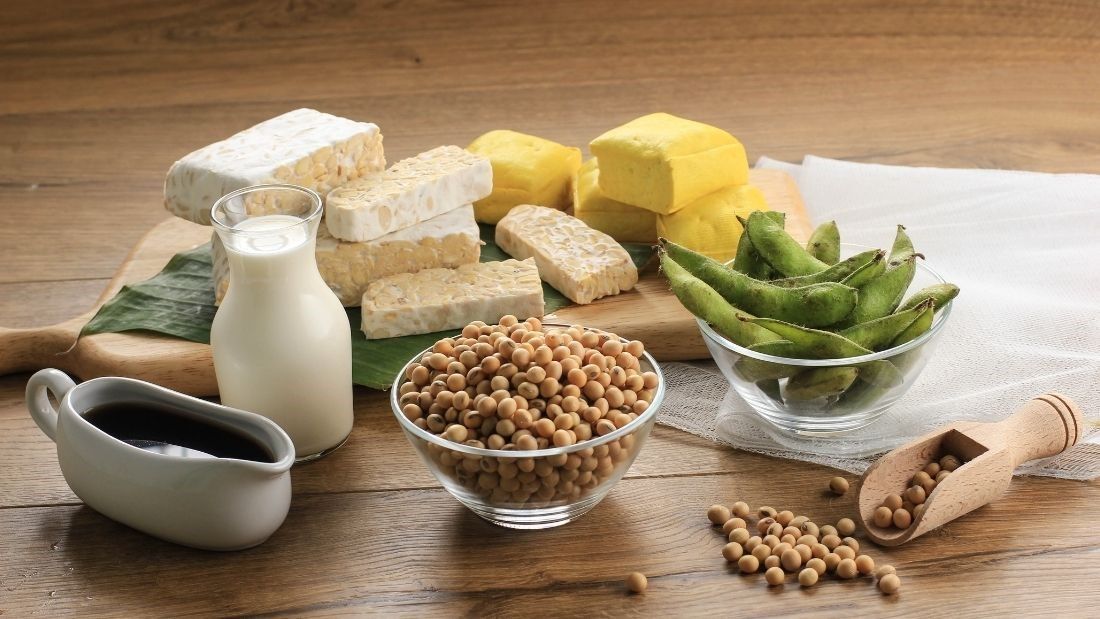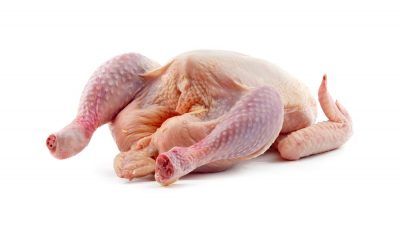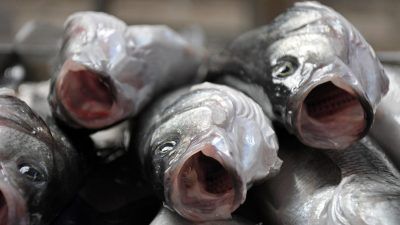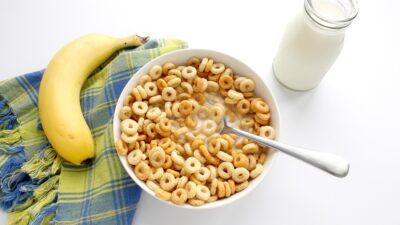5 soya myths debunked

There are probably more myths, misinformation and downright lies about soya than any other food. The scare stories about the ‘dangers’ of this humble bean are not supported by any science but still, they persist. Let’s set the record straight once and for all!
Myth #1: Soya disrupts hormones
Perhaps the most common soya myth is that it disrupts our hormonal systems and can cause ‘man boobs’. There’s no evidence that soya disrupts sexual development or fertility in anyone but the scare stories have stuck, focusing largely on soya isoflavones – plant hormones or phytoestrogens. They can bind to oestrogen receptors in the body and cause either weak oestrogenic or anti-oestrogenic activity – slightly mimicking or inhibiting the effects of oestrogen. This means that they may, in fact, have a ‘normalising’ effect – reducing a strong oestrogenic signal by blocking receptors or slightly boosting a weak one by binding to unoccupied receptors. However, they are considerably weaker than the animal oestrogen found in human and cow’s milk, which never seems to attract the same scrutiny.
Concerns over isoflavones are largely based on small-scale animal experiments but isoflavones behave very differently in different species. Experiments in which animals are injected with high doses or force-fed excessive amounts, bear no relevance to humans. Human studies show that soya isoflavones are safe and even beneficial to health; they exhibit antioxidant, anticancer, antimicrobial and anti-inflammatory properties. Rather than disrupt hormones, they may actually help regulate them, especially in post-menopausal women. Lastly, people in parts of Asia have been consuming relatively high amounts of soya for hundreds of years, if it affected sexual development or fertility, that would have been noticed by now!
Myth #2: Soya is processed and therefore unhealthy
Firstly, soya comes in many forms: it can be eaten as the whole bean (edamame) or in processed foods such as tofu and tempeh, and dairy alternatives. But just because something is processed, doesn’t mean it’s unhealthy (which is why the term ultra-processed was introduced to describe highly manufactured junk foods).
Compared to other pulses, soya beans have a much lower carbohydrate content and are higher in protein and polyunsaturated ‘healthy’ fats, including both omega-3 and omega-6 essential fatty acids. Soya contains all nine essential amino acids – the building blocks of protein – which we can’t make in our bodies and must obtain from food. Soya is also a good source of disease-busting antioxidants, B vitamins, potassium, magnesium and iron.
Soya beans or edamame can usually be found in the freezer section of shops. These and other whole soya foods, such as tempeh, provide fibre which is important for bowel health and lowering cholesterol. Like all plant foods, soya contains no cholesterol.
Traditional soya foods, such as soya milk, tofu, tempeh, miso and soya sauce, are made using either precipitation or fermentation methods. Many use the whole bean so are healthier than products made from processed soya protein alone such as TVP and other meat substitutes, which still provide a good, low-fat source of protein but are not as healthy as the whole bean.
Myth #3: Soya causes breast cancer
In the past, there were concerns that soya may increase the risk of breast cancer or make it worse in some cases. Extensive research over the last 30 years has found no such negative effects. In fact, eating soya during childhood and adolescence lowers the risk later in life and eating it after being diagnosed with breast cancer lowers the risk of recurrence and may improve treatment outcomes. This may be due to isoflavones blocking the more potent oestrogens in the blood but more research is needed.
The Shanghai Women’s Health Study, the largest-ever study of soya and breast cancer, found that women who ate the most soya had a 59 per cent lower risk of premenopausal breast cancer compared with those who ate the least. Soya foods can also help combat menopausal symptoms and may halve the number of hot flushes in women who eat soya compared to those who eat little or none.
Myth #4: Soya is nutritionally inferior to dairy
Soya milk, and other dairy alternatives made from soya, is a healthier alternative to cow’s milk – as long as you drink fortified, low- or no-sugar varieties.
If you’re worried about calcium, fortified soya milk, yoghurt and calcium-set tofu provide significant amounts of this important mineral. In fact, a 2018 study comparing plant-based milks to dairy milk found that the soya milks they tested actually had more calcium than cow’s milk. Soya milk is also higher in unsaturated ‘healthy’ fats, fibre and protein, as well as a number of other vitamins and minerals. Cow’s milk, on the other hand, was higher in cholesterol (soya milk has none), which can increase your risk of heart disease. Dairy has also been linked to many other diseases including prostate cancer. Ditching the dairy in favour of soya milk could be a life saver.
Myth #5: Soya is unsafe for young children
Exclusive breastfeeding is recommended for all infants but for those who can’t breastfeed, experts agree that soya-based infant formula is a safe and affordable option. A 2013 UK Government review on phytoestrogens and health found no evidence of harm in infants fed soya formulas but still maintain they should only be used when recommended by a health professional. They are currently preparing to update this report. Millions of people have been raised on soya formula over the last 60 years with no reported adverse effects. In the US, around a quarter of formula-fed infants are given soya formula.
It would not be right to end without a quick mention of the environmental concerns relating to soya. The myth the meat industry loves to push is that soya-eating vegans are driving deforestation in the Amazon. In fact, most deforestation is driven by expanding pastures for beef or soya to feed poultry and pigs. Our World in Data, a leading research organisation from the University of Oxford, says: “The idea that foods often promoted as substitutes for meat and dairy – such as tofu and soy milk – are driving deforestation is a common misconception.” Just seven per cent of global soya is used for foods such as tofu and soya milk and most soya food producers in the UK use beans grown in Europe. If you want to stop deforestation and protect your health – go vegan!







